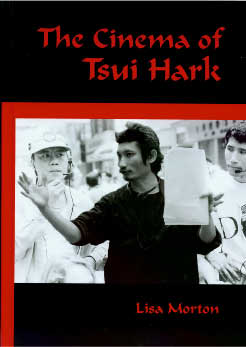
The Cinema of Tsui Hark
By Lisa Morton
$35.00 - Hardcover
240 Pages

The title of the book indicates where the focus of this work lies. Most of it is dedicated to the films of Tsui Hark rather than Tsui Hark the man. To some degree of course the two cannot be separated, but the vast majority of the book is spent analyzing individually each of the films in which he had some part – as producer, director or actor. Lisa Morton displays a wonderful writing style that is very readable, informal and also highly informative. One can sense her absolute admiration for the man’s films and yet she still keeps enough of a distance to bring a degree of objectivity to her reviews.
The reviews are generally broken into three sections – a synopsis, an analysis and some information on how the film fared at the box office and at the award ceremonies. In some instances she also includes some comments from Tsui himself on the film. One should be warned that the synopsis contains a fairly detailed description of the plot of the film and thus contains many spoilers. The real pleasure – especially for those that have seen the films – are the analyses that are often very insightful and sparkling with enthusiasm. After reading many of the reviews it was all I could do to stop myself from sitting down and re-watching the film again. One of Tsui’s few films that I have intentionally avoided, Dangerous Encounters – 1st Kind, now sounds like a fascinating must see.
Of the 240 pages, 190 of them are spent on
reviewing his films while only some twelve pages discuss his life and his
impact on film and then the author’s interview with Tsui takes up an additional
16 pages. I suppose this could be considered the major drawback of this
book even if that was out of the scope of the project. It doesn’t purport
to be a biography, but still one has to be a little disappointed that there
isn’t more about his life, who he is, what drives him and how all this
effects his films. That will hopefully be another book from someone in
the future, but for what this book sets out to be it is a terrific and
enlightening look at the Cinema of Tsui Hark.